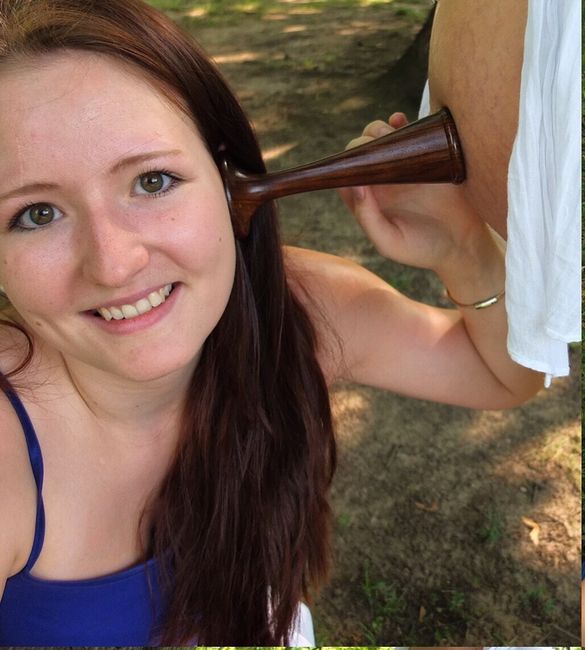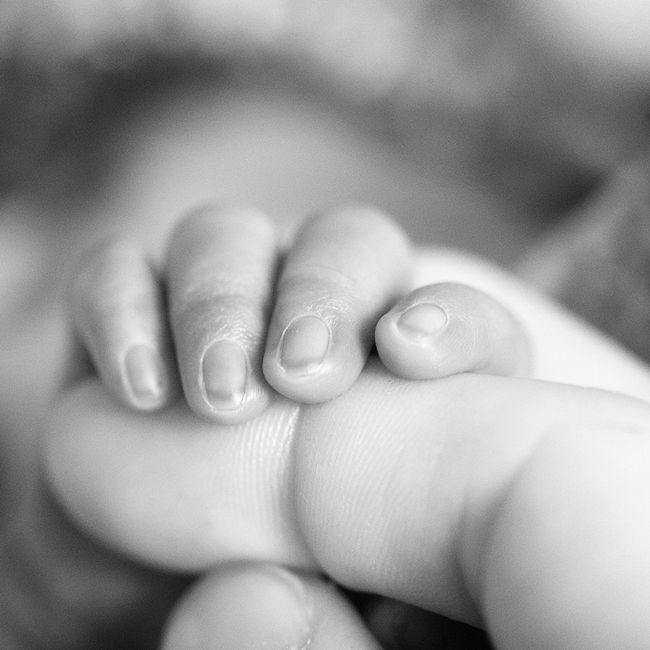I thought I was strong
Objavljeno: 20.09.2018
Pretplatite se na bilten
...But there are moments when you just want to be held.
Wednesday, September 19th, 2018
Today I had to start at 7 am, as I was scheduled to work with only one other nurse. During the night shift, a child with a malformation was born, and my first task was to transfer the child to another clinic. I already had experience driving the ambulance.. It was exciting, as this time no nurse accompanied me, but the handover worked in English and I hope the child can be helped.
There were 4 more women in labor, but none seemed to be giving birth. It was 2 pm, the afternoon shift was already there, and the nurses were talking loudly at the counter. I was about to change clothes and then I heard a woman screaming from the delivery room! Unusual for Tanzanian women.
They really only scream in emergencies.
I looked at the nurses- no reaction. What did I expect..
I didn't hesitate and rushed to the woman. She was expecting her second child. Unfortunately, the first one died during childbirth.
It was strange, I had a bad feeling about her all day. From palpating her belly, I could feel that she had a lot of amniotic fluid and a small baby. But the heartbeat was always in the normal range, and there were no apparent reasons for my uneasy feeling.
Until this moment.
I still find it difficult to put it into words..
As I stood next to the woman, I saw that her amniotic sac had ruptured and she was in the final stage of labor.
I wanted to examine her and already saw that it was an acute obstetric emergency. It wasn't the head leading the way, but I saw the umbilical cord between the woman's legs. I held my breath.
Umbilical cord prolapse
I quickly put on gloves. (The woman was HIV positive and self-protection is still a priority in this case)
I asked the woman to turn around. The knee-elbow position helps take the pressure off the baby's head, while I held the umbilical cord that was prolapsing in my hand and tried to push it upward to relieve the compression and therefore the deprivation of oxygen for the baby, and at the same time I called for help.
The woman didn't understand what I wanted her to do, and still no one came.
So I had to let go of the umbilical cord to inform the nurses from outside.
They came and recognized the problem. They couldn't do anything with the position, but they explained it to the woman. I asked that we need to perform an emergency cesarean section NOW, as the umbilical cord kept falling forward again and again.
But they started drawing blood for their pointless hemoglobin measurement at that moment, and I knew we didn't have time. I still tried to hold the umbilical cord, but I felt it stop pulsating.
A thousand things went through my mind.
We can't just give up like this.
I thought briefly and knew it was too late for a cesarean section here in Tanzania. So I let the woman change positions quickly to release the compression of the umbilical cord. It worked, two contractions later, the baby was born, but at that point, it hadn't received any oxygen supply through the umbilical cord for 15 minutes..
It showed no signs of life, and I immediately started resuscitation. The nurses left. Luckily, I could convince a doctor to help me while I administered medication to support the little body.
We fought for the little boy for 25 minutes, who weighed only 2.3 kg.
It was too late.
How could we just do nothing anymore.
A world collapsed for me.
I stood there paralyzed. Right in front of the woman's bed was our only incubator on which I was doing the resuscitation. She looked at me with so much expression, and that image is burned into my memory.
It was a mixture of confidence 'You can do it', a plea to give everything, and suffering 'I can't lose another child'.
And I knelt beside her bed, crying, and had to tell her that I didn't make it.
There was immense grief within me and compassion for the woman. But also disappointment, feeling like I hadn't accomplished anything, as well as anger and helplessness towards the entire process. And above all, incomprehension regarding the people working here.
I sat with the woman for a long time and held her.
I wanted everything to be explained to her in her language, but no one was willing to translate for me. It was terrible.
Over an hour later, I sat at the counter to write her papers. Tears were still streaming down my face.
A nurse approached me and said, 'You look tired.'
I couldn't control myself anymore and became loud, telling her to take a closer look. There is no tiredness on my face, I am sad! Sad because I don't think it's normal that I have to hold dead children in my arms every day and can't just walk out without showing an ounce of empathy.
I just wanted to get away.
Away from these heartless people. It is incomprehensible to me how someone can become so cold.
Back home, I collapsed in the arms of my roommates.
I felt so weak. Too weak to endure all of this.
The situations are just infinitely sad. But this lack of understanding from the nurses is just making me feel devastated. With these types of people here, who always suppress their emotions, show no weakness, express no pain, and therefore appear numb and cold, I simply cannot connect.
I questioned everything. My decision to come here. My strength to continue in this profession. And my mental resilience.
The week was tough, very tough.
But now I'm taking a few days off to gather strength for the final weeks of obstetrics in Africa.
I hope I have experienced my sad moments now and try to start the next shifts with confidence.
Thanks to Saskia, Mia, and Ines for the on-site support!
And thanks to the people who always lend me an ear in such moments despite the great distance!
'The hardest times in our lives are the best opportunity to develop inner strength.'
Pretplatite se na bilten
Odgovori


